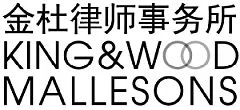- within Strategy, Environment and International Law topic(s)
After a three-year trial, the case of Kirin Kyowa Foods Co., Ltd. vs. Chen and Wang over a trademark assignment contract has currently been decided by the first instance. Kirin Kyowa Foods Co., Ltd. (the "Plaintiff"), as the proprietor of the trademark "可得然" , appointed Shanghai Aucane Enterprise Co., Ltd. ("Aucane") as its sales agent for gelatine bearing the "可得然" trademark. In March 2006, Chen (the "Defendant"), the legal representative of Aucane, preemptively filed an application for registration of "CURDLAN", which is the English equivalent of the "可得然" trademark at the China Trademark Office (the "TMO"). In 2007, both parties signed a Trademark Assignment Contract (the "Contract"), requiring the Defendant to assign the trademark "CURDLAN" to the Plaintiff at the price of US$2,000. In May 2008, the TMO took office action on the grounds that "the assignor's signature is evidently inconsistent with the one filed with the TMO in the past", and required the Plaintiff to provide a copy of the assignor's ID card and its notarized statement of agreement on the said trademark assignment. However, the Defendant failed to provide any of the above materials, causing the TMO to refuse the assignment of "CURDLAN", and thus the Plaintiff appealed to the court.
During the trial, the Plaintiff filed a petition requesting the court to confirm the effectiveness of the Contract and to order the Defendant to perform its obligations prescribed in the Contract by claiming that the Defendant's signature on the Contract is identical to the one on the business registration materials at the Administration of Industry and Commerce ("AIC"). The Defendant argued that the Contract was invalid due to the fact that it was signed on behalf of the Defendant by a third party, Wang, who is the defendant's husband, under coercion by the Plaintiff. Wang affirmed that he signed the signature of Chen on the Contract without authorization of the Defendant. According to judicial authentication, the signature of Chen on both the Contract and the AIC registration materials is handwriting from the same person.
In the end, the court held that the assignment contract of the trademark "CURDLAN" reflected true meanings of both parties. The signature was considered credible based on the fact that it is identical to the one on AIC registration materials. Even though the Contract was signed by the third party, the Defendant did not oppose after being informed and further accepted the consideration provided by the Plaintiff, so that the Contract came into existence. Therefore, the court ruled that the Defendant shall assist the Plaintiff in completing the procedures of trademark assignment in accordance with the Contract.
Although the court of the first instance eventually decided that the Contract is legitimately effective, the Plaintiff has already spent considerable time, efforts and attorney fees on this case. In the event that the Defendant appeals against the decision to a higher court, the Plaintiff will have to spend even more time and efforts and bear higher costs. Therefore, in order to prevent such disputes and ensure the application for trademark assignment to be approved by the TMO, it is suggested that when signing a trademark assignment contract, the assignee should request the assignor to provide a copy of ID card or a copy of business license affixed with company seal as attachments of the contract, and then both parties sign the contract before a Notary Public prior to filing with the TMO.
The content of this article is intended to provide a general guide to the subject matter. Specialist advice should be sought about your specific circumstances.


